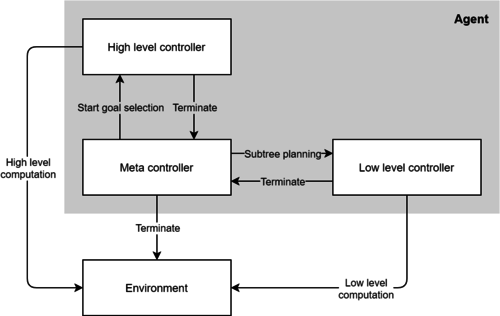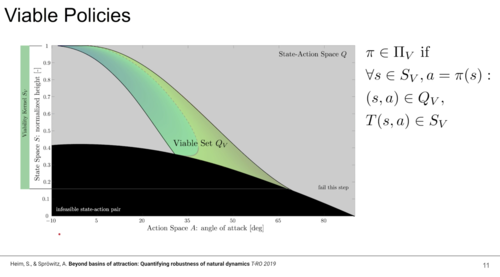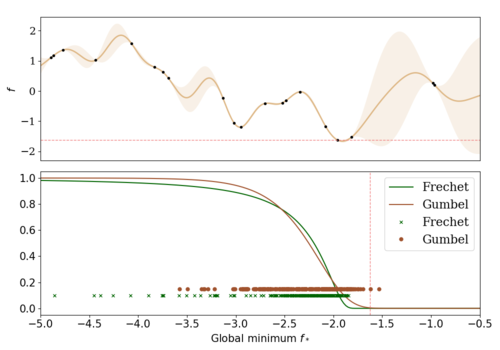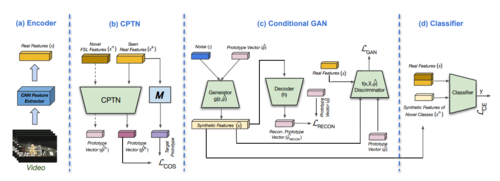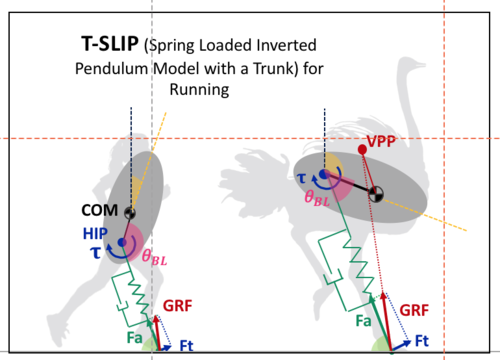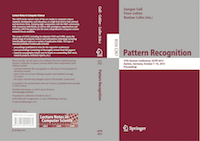2022
ei
Biester, L., Demszky, D., Jin, Z., Sachan, M., Tetreault, J., Wilson, S., Xiao, L., Zhao, J.
Proceedings of the Second Workshop on NLP for Positive Impact (NLP4PI)
Association for Computational Linguistics, December 2022 (proceedings)
ei
Schölkopf, B.
Causality, causal digital twins, and their applications
Machine Learning for Science: Bridging Data-Driven and Mechanistic Modelling (Dagstuhl Seminar 22382), (Editors: Berens, Philipp and Cranmer, Kyle and Lawrence, Neil D. and von Luxburg, Ulrike and Montgomery, Jessica), September 2022 (talk)
ei
Schölkopf, B., Uhler, C., Zhang, K.
Proceedings of the First Conference on Causal Learning and Reasoning (CLeaR 2022)
177, Proceedings of Machine Learning Research, PMLR, April 2022 (proceedings)
2021
ev
Strecke, M., Stückler, J.
Physically Plausible Tracking & Reconstruction of Dynamic Objects
KIT Science Week Scientific Conference & DGR-Days 2021, October 2021 (talk)
ei
Field, A., Prabhumoye, S., Sap, M., Jin, Z., Zhao, J., Brockett, C.
Proceedings of the 1st Workshop on NLP for Positive Impact
Association for Computational Linguistics, August 2021 (proceedings)
re
Heindrich, L., Consul, S., Stojcheski, J., Lieder, F.
Improving Human Decision-Making by Discovering Efficient Strategies for Hierarchical Planning
Tübingen, Germany, The first edition of Life Improvement Science Conference, June 2021 (talk) Accepted
2020
dlg
Heim, S., Badri-Spröwitz, A.
Beyond Basins of Attraction: Quantifying Robustness of Natural Dynamics
May 2020 (talk)
ev
25th International Symposium on Vision, Modeling and Visualization, VMV 2020
(Editors: Jens Krüger and Matthias Nießner and Jörg Stückler), Eurographics Association, 2020 (proceedings)
am
ics
Marco, A., Rohr, A. V., Baumann, D., Hernández-Lobato, J. M., Trimpe, S.
Excursion Search for Constrained Bayesian Optimization under a Limited Budget of Failures
2020 (proceedings) In revision
2019
ei
Safavi, S., Logothetis, N., Besserve, M.
Multivariate coupling estimation between continuous signals and point processes
Neural Information Processing Systems 2019 - Workshop on Learning with Temporal Point Processes, December 2019 (talk)
ps
Dwivedi, S. K., Gupta, V., Mitra, R., Ahmed, S., Jain, A.
ProtoGAN: Towards Few Shot Learning for Action Recognition
Proc. International Conference on Computer Vision (ICCV) Workshops, October 2019 (manual)
2018
dlg
Drama, Ö.
Impact of Trunk Orientation for Dynamic Bipedal Locomotion
Dynamic Walking Conference, May 2018 (talk)
2016
ei
Ihler, A. T., Janzing, D.
Proceedings of the 32nd Conference on Uncertainty in Artificial Intelligence (UAI)
pages: 869 pages, AUAI Press, June 2016 (proceedings)
ei
Castaneda, S., Katiyar, P., Russo, F., Calaminus, C., Disselhorst, J. A., Ziemann, U., Kohlhofer, U., Quintanilla-Martinez, L., Poli, S., Pichler, B. J.
Analysis of multiparametric MRI using a semi-supervised random forest framework allows the detection of therapy response in ischemic stroke
World Molecular Imaging Conference, 2016 (talk)
ei
Katiyar, P., Divine, M. R., Kohlhofer, U., Quintanilla-Martinez, L., Siegemund, M., Pfizenmaier, K., Kontermann, R., Pichler, B. J., Disselhorst, J. A.
Multi-view learning on multiparametric PET/MRI quantifies intratumoral heterogeneity and determines therapy efficacy
World Molecular Imaging Conference, 2016 (talk)
2015
ps
Gall, J., Gehler, P., Leibe, B.
Proceedings of the 37th German Conference on Pattern Recognition
Springer, German Conference on Pattern Recognition, October 2015 (proceedings)
ei
Besserve, M.
Causal Inference for Empirical Time Series Based on the Postulate of Independence of Cause and Mechanism
53rd Annual Allerton Conference on Communication, Control, and Computing, September 2015 (talk)
ei
Besserve, M.
Independence of cause and mechanism in brain networks
DALI workshop on Networks: Processes and Causality, April 2015 (talk)
ei
Chaves, R., Majenz, C., Luft, L., Maciel, T., Janzing, D., Schölkopf, B., Gross, D.
Information-Theoretic Implications of Classical and Quantum Causal Structures
18th Conference on Quantum Information Processing (QIP), 2015 (talk)
ei
Castaneda, S. G., Katiyar, P., Russo, F., Disselhorst, J. A., Calaminus, C., Poli, S., Maurer, A., Ziemann, U., Pichler, B. J.
Assessment of brain tissue damage in the Sub-Acute Stroke Region by Multiparametric Imaging using [89-Zr]-Desferal-EPO-PET/MRI
World Molecular Imaging Conference, 2015 (talk)
ei
Divine, M. R., Harant, M., Katiyar, P., Disselhorst, J. A., Bukala, D., Aidone, S., Siegemund, M., Pfizenmaier, K., Kontermann, R., Pichler, B. J.
Early time point in vivo PET/MR is a promising biomarker for determining efficacy of a novel Db(\alphaEGFR)-scTRAIL fusion protein therapy in a colon cancer model
World Molecular Imaging Conference, 2015 (talk)
ei
Foreman-Mackey, D., Hogg, D. W., Schölkopf, B.
The search for single exoplanet transits in the Kepler light curves
IAU General Assembly, 22, pages: 2258352, 2015 (talk)
2014
ei
Besserve, M., Schölkopf, B., Logothetis, N. K.
Unsupervised identification of neural events in local field potentials
44th Annual Meeting of the Society for Neuroscience (Neuroscience), 2014 (talk)
ei
Besserve, M.
Quantifying statistical dependency
Research Network on Learning Systems Summer School, 2014 (talk)
ei
Divine, M. R., Disselhorst, J. A., Katiyar, P., Pichler, B. J.
Using a population based Gaussian Mixture Model on fused [18]F-FDG PET and DW-MRI images accurately segments the tumor microenvironment into clinically relevant compartments capable of guiding therapy
European Molecular Imaging Meeting, 2014 (talk)
ei
Janzing, D.
Causal Inference from Passive Observations
24th Summer School University of Jyväskylā, Finland, August, 2014 (talk)
2013
ei
Logothetis, N., Eschenko, O., Murayama, Y., Augath, M., Steudel, T., Evrard, H., Besserve, M., Oeltermann, A.
Studying large-scale brain networks: electrical stimulation and neural-event-triggered fMRI
Twenty-Second Annual Computational Neuroscience Meeting (CNS*2013), July 2013, journal = {BMC Neuroscience},
year = {2013},
month = {7},
volume = {14},
number = {Supplement 1},
pages = {A1}, (talk)
ei
Mantlik, F., Bezrukov, I., Hofmann, M., Schölkopf, B., Pichler, B.
MR-Based Attenuation Correction for Combined Brain PET/MR: Robustness of Atlas- and Pattern Recognition Method to Atlas Registration Failures
IEEE Nuclear Science Symposium and Medical Imaging Conference (IEEE MIC), 2013 (talk)
ei
Deisenroth, M., Szepesvári, C., Peters, J.
Proceedings of the 10th European Workshop on Reinforcement Learning, Volume 24
pages: 173, JMLR, European Workshop On Reinforcement Learning, EWRL, 2013 (proceedings)
ei
Muandet, K.
Domain Generalization via Invariant Feature Representation
30th International Conference on Machine Learning (ICML2013), 2013 (talk)
2012
ei
Muandet, K.
Support Vector Machines, Support Measure Machines, and Quasar Target Selection
Center for Cosmology and Particle Physics (CCPP), New York University, December 2012 (talk)
ei
Muandet, K.
Hilbert Space Embedding for Dirichlet Process Mixtures
NIPS Workshop on Confluence between Kernel Methods and Graphical Models, December 2012 (talk)
ei
Wehrl, H., Lankes, K., Hossain, M., Bezrukov, I., Liu, C., Martirosian, P., Schick, F., Pichler, B.
Simultaneous small animal PET/MR in activated and resting state reveals multiple brain networks
20th Annual Meeting and Exhibition of the International Society for Magnetic Resonance in Medicine (ISMRM), May 2012 (talk)
ei
Wehrl, H., Lankes, K., Hossain, M., Bezrukov, I., Liu, C., Martirosian, P., Reischl, G., Schick, F., Pichler, B.
A new PET insert for simultaneous PET/MR small animal imaging
20th Annual Meeting and Exhibition of the International Society for Magnetic Resonance in Medicine (ISMRM), May 2012 (talk)
ei
Hossain, M., Wehrl, H., Lankes, K., Liu, C., Bezrukov, I., Reischl, G., Pichler, B.
Evaluation of a new, large field of view, small animal PET/MR system
50. Jahrestagung der Deutschen Gesellschaft fuer Nuklearmedizin (NuklearMedizin), April 2012 (talk)
ei
Muandet, K.
Support Measure Machines for Quasar Target Selection
Astro Imaging Workshop, 2012 (talk)
ei
Seldin, Y.
PAC-Bayesian Analysis: A Link Between Inference and Statistical Physics
Workshop on Statistical Physics of Inference and Control Theory, 2012 (talk)
ei
Liu, C., Hossain, M., Lankes, K., Bezrukov, I., Wehrl, H., Kolb, A., Judenhofer, M., Pichler, B.
PET Performance Measurements of a Next Generation Dedicated Small Animal PET/MR Scanner
Nuclear Science Symposium and Medical Imaging Conference (NSS-MIC), 2012 (talk)
ei
Wehrl, H., Hossain, M., Lankes, K., Liu, C., Bezrukov, I., Martirosian, P., Reischl, G., Schick, F., Pichler, B.
Simultaneous small animal PET/MR reveals different brain networks during stimulation and rest
World Molecular Imaging Congress (WMIC), 2012 (talk)
ei
Seldin, Y., Laviolette, F., Shawe-Taylor, J.
PAC-Bayesian Analysis of Supervised, Unsupervised, and Reinforcement Learning
Tutorial at the 29th International Conference on Machine Learning (ICML), 2012 (talk)
ei
Bezrukov, I., Schmidt, H., Mantlik, F., Schwenzer, N., Brendle, C., Pichler, B.
Influence of MR-based attenuation correction on lesions within bone and susceptibility artifact regions
Molekulare Bildgebung (MoBi), 2012 (talk)
ei
Boularias, A., Kroemer, O., Peters, J.
Structured Apprenticeship Learning
European Workshop on Reinforcement Learning (EWRL), 2012 (talk)
ei
Seldin, Y., Laviolette, F., Shawe-Taylor, J.
PAC-Bayesian Analysis and Its Applications
Tutorial at The European Conference on Machine Learning and Principles and Practice of Knowledge Discovery in Databases (ECML-PKDD), 2012 (talk)
ei
Langs, G., Rish, I., Grosse-Wentrup, M., Murphy, B.
Machine Learning and Interpretation in Neuroimaging - Revised Selected and Invited Contributions
pages: 266, Springer, Heidelberg, Germany, International Workshop, MLINI, Held at NIPS, 2012, Lecture Notes in Computer Science, Vol. 7263 (proceedings)
ei
Deisenroth, M., Peters, J.
Solving Nonlinear Continuous State-Action-Observation POMDPs for Mechanical Systems with Gaussian Noise
European Workshop on Reinforcement Learning (EWRL), 2012 (talk)
ei
Nishiyama, Y., Boularias, A., Gretton, A., Fukumizu, K.
Kernel Bellman Equations in POMDPs
Technical Committee on Infomation-Based Induction Sciences and Machine Learning (IBISML'12), 2012 (talk)
ei
Panagiotaki, E., O’Donnell, L., Schultz, T., Zhang, G.
MICCAI, Workshop on Computational Diffusion MRI, 2012 (electronic publication)
15th International Conference on Medical Image Computing and Computer Assisted Intervention (MICCAI), Workshop on Computational Diffusion MRI , 2012 (proceedings)
ei
Panagiotaropoulos, T., Besserve, M., Logothetis, N.
Beta oscillations propagate as traveling waves in the macaque prefrontal cortex
42nd Annual Meeting of the Society for Neuroscience (Neuroscience), 2012 (talk)


